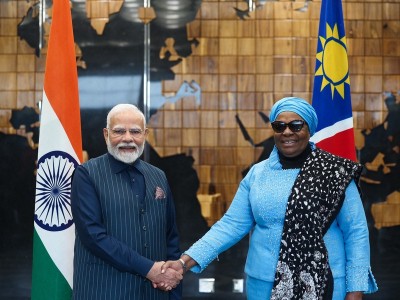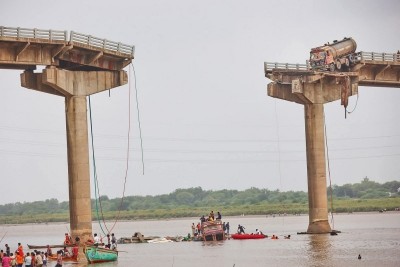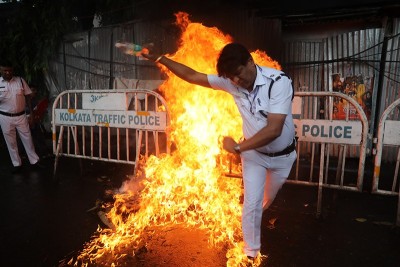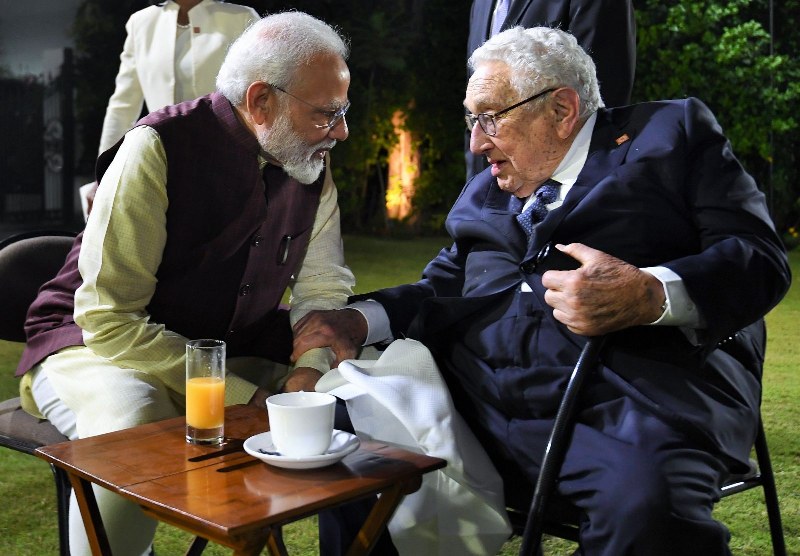 Henry Kissinger
Henry Kissinger
How Henry Kissinger evolved from India-critic to advocate of strong India-US ties
Washington: Former US Secretary of State Henry Kissinger, who had held India and the Indians with contempt and disregard, especially in relation to New Delhi’s role in the Bangladesh Liberation War, later advocated strong ties with the country now led by Narendra Modi as Prime Minister. The powerhouse American diplomat passed away on Wednesday in Connecticut in the US.
The centurion made a rare appearance in Washington in June 2018 to attend the first annual leadership summit of the US-India Strategic Partnership Forum (USISPF), expressing his admiration for India's strategic approach.
Dislike for India and Indians
Historians note that while Kissinger's relations with India soured in the 1970s, particularly during the tenure of Prime Minister Indira Gandhi, his views evolved with India's emergence as a strong power in the post-Cold War era.
For the past decade, Kissinger consistently spoke in favour of robust bilateral relations with India across successive governments.
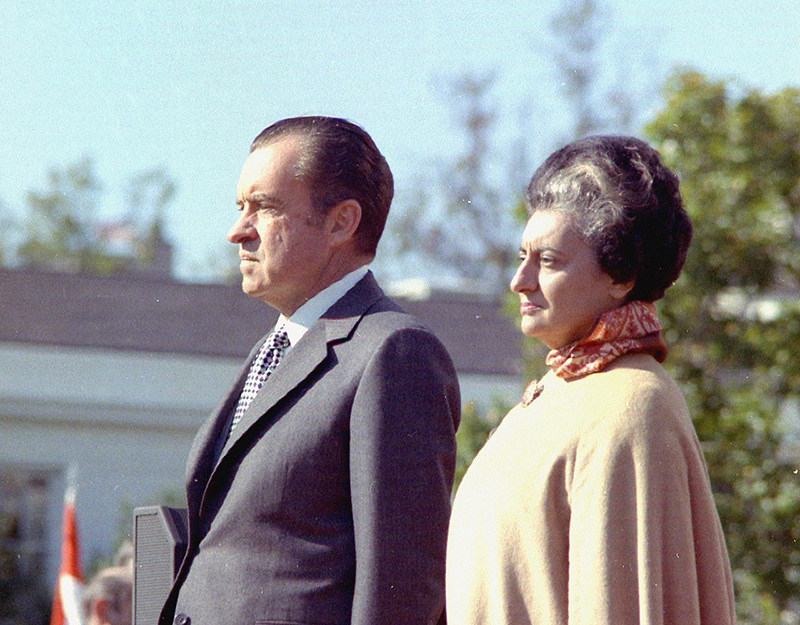 Indira Gandhi with U.S. President Richard Nixon, 1971. Photo courtesy: Wikipedia/Creative Commons
Indira Gandhi with U.S. President Richard Nixon, 1971. Photo courtesy: Wikipedia/Creative Commons
During the 1971 Bangladesh–Pakistan War, Kissinger reportedly described Indian Prime Minister Indira Gandhi as a "b***h". He also said "the Indians are b******s", shortly before the war.
Later, Kissinger expressed regret over his remarks.
In a recorded conversation, President Richard Nixon referred to a meeting with Indira Gandhi on the day before.
"We really slobbered over the old witch," he told Kissinger, as quoted in a report by The Guardian.
“While she was a b***h, we got what we wanted too," Kissinger replied, as quoted in the report. “She will not be able to go home and say that the US didn't give her a warm reception and therefore in despair she's got to go to war."
"The Indians are b******s anyway," he added. “They are the most aggressive goddamn people around," as quoted in the Guardian report.
Prof Gary J. Bass, a politics and international affairs expert, stated that on June 3, 1971, as thousands of traumatized Bengali refugees fled from the Pakistan army, Kissinger slammed the Indians. According to Kissinger, India was responsible for the refugee crisis and accused them of surreptitiously backing the Bengali insurgency.
Kissinger then condemned Indians as a whole, his voice loaded with disdain, "They are a scavenging people".
Praise for Indira Gandhi
However, Kissinger could not ignore Prime Minister Indira Gandhi’s powerful leadership in the face of grave challenges. He once admitted the US Republican administration, at the time, had always wished it had a male leader as "strong" as the "formidable Indira Gandhi".
"Our relations with India are friendly and aloof. It's a fortunate thing the Indians are pacifists, otherwise, their neighbours would be worried. The first time we were in India, they told me that Kabul belonged to India too," Kissinger had been recorded as having said according to a White House memo.
In his book World Order, Kissinger said: "Emerging into a world of established powers and the Cold War, independent India subtly elevated freedom of maneuver from a bargaining tactic into an ethical principle ...Jawaharlal Nehru and subsequent PMs proceeded to buttress India’s position as part of the global equilibrium by elevating their foreign policy into an expression of India’s superior moral authority."
Shift in opinion towards India
After the end of the Cold War and India's rise as a powerhouse over the last ten decades, Kissinger's opinion on India evolved.
Across successive governments, he acknowledged that the Cold War and the Bangladesh crisis had brought India and the US to the brink of confrontations.
"India was at the beginning of a historic evolution and not all of the problems that concerned us were of equal importance to India. India was heavily involved with its own evolution and the policy of neutrality," he had said.
However, by 2008 he recognised that "India has parallel objectives to the United States", and he termed India an ally of the US. "I would say no two countries now are better situated to evolve their friendship," Kissinger said.
"When I think about India, I admire their strategy," Kissinger said in June 2018 while addressing a leadership summit of the US India Strategic and Partnership Forum.
On Kissinger's demise, Congress leader Shashi Tharoor, who had been on first name terms with the former American diplomat, said in a post on X, "The end of, by any definition, an extraordinary life. Henry Kissinger was indeed both a pivotal and a polarising figure."
"For a few years in New York, I knew him well enough to be on first-name terms with him. I was still amazed how 'Henry', the architect of the US tilt towards Pakistan in 1971, could morph with such insouciance into the most prominent advocate of closer US-India relations three decades later. It helps to live long enough so people don't remember your earlier statements and actions!" the Congress MP added.
The end of, by any definition, an extraordinary life. Henry Kissinger was indeed both a pivotal and a polarising figure, as this @BBC obituary states. For a few years in New York, I knew him well enough to be on first-name terms with him. I was still amazed how “Henry”, the…
— Shashi Tharoor (@ShashiTharoor) November 30, 2023
Tharoor's remarks gain significance as much of Kissinger's earlier disdain for India was also marked by pejoratives against Indira Gandhi, arguably the tallest Congress leader after Jawaharlal Nehru.
2019 India visit
The former US diplomat, who was known to wield more influence than any head of state in the world well into his last days, visited India with former US Secretary Condoleezza Rice and former US Secretary of Defence Robert Gates. British Prime Minister Tony Blair and former Australian Prime Minister John Howard had also come to attend JP Morgan International Council meet, a gathering of top policymakers, thinkers, statesmen and stateswomen, industrialists and innovators.
The Prime Minister tweeted about his meetings with the visiting leaders and attached a photograph of a friendly soiree where he can be seen involved in a close conversation with Kissinger.
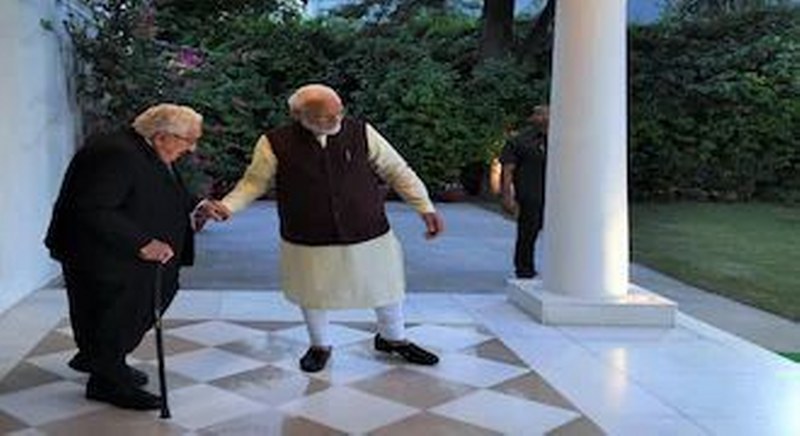 Image: PMO India
Image: PMO India
"Moments with Kissinger, former Prime Ministers Tony Blair and John Howard, Condoleezza Rice and Robert Gates. Excellent discussions with these global thought leaders.... Glad to have met Dr Henry Kissinger. He has made pioneering contributions to international politics and diplomacy," Modi had said.
India ‘fulcrum of 21st Century order’
He expressed his liking for Prime Minister Narendra Modi as many opine that over the past few years he had become "a great fan" of PM Modi.
After Modi ascended as the Prime Minister of India in 2014, Kissinger, also who had officiated a long and eventful period as US National Security Adviser, began advocating strong ties with India.
Despite facing health issues, Kissinger travelled to Washington in June of this year during Prime Minister Narendra Modi's Official State Visit.
He arrived in a wheelchair to attend Modi's address at the luncheon hosted by Vice President Kamala Harris and Secretary of State Antony Blinken at the State Department.
During the luncheon, Kissinger, recognised for his significant influence on American national security and foreign policy, attentively listened to the Prime Minister's speech and engaged in a conversation with him.
Further, highlighting his shift in opinion towards India, Kissinger said India will be a "fulcrum of 21st Century order". "India will be an indispensable element, based on its geography, resources, and tradition of sophisticated leadership, in the strategic and ideological evolution of the regions and the concepts of order at whose intersection it stands," he had said.
In 1973, Kissinger was awarded the Nobel Peace Prize for his role in orchestrating the conclusion of US military involvement in the Vietnam War.
His covert diplomacy also played a pivotal role in President Richard Nixon's efforts to establish relations with communist China, marked by Nixon's historic visit to Beijing in 1972.
Support Our Journalism
We cannot do without you.. your contribution supports unbiased journalism
IBNS is not driven by any ism- not wokeism, not racism, not skewed secularism, not hyper right-wing or left liberal ideals, nor by any hardline religious beliefs or hyper nationalism. We want to serve you good old objective news, as they are. We do not judge or preach. We let people decide for themselves. We only try to present factual and well-sourced news.





